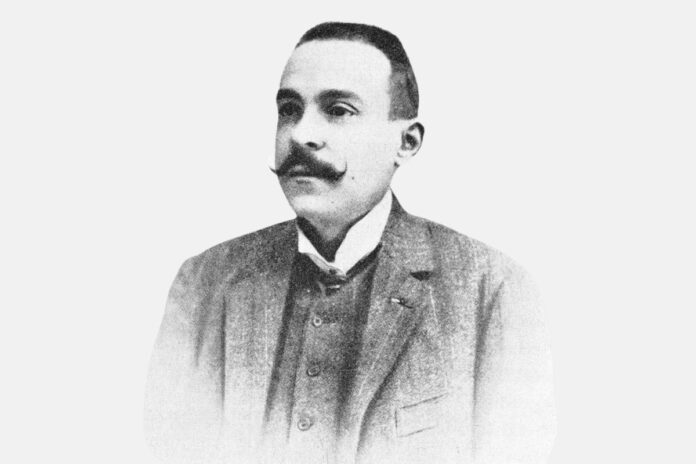Ruggero Oddi (July 20, 1864 – March 22, 1913) was an Italian physiologist and anatomist, born in Perugia, Italy. He is most famous for his discovery of the Sphincter of Oddi, a muscle that controls the flow of bile and pancreatic juice into the duodenum. This anatomical structure, named in his honor, plays a key role in digestive processes. Oddi’s work in the field of physiology and anatomy made significant contributions to the understanding of the digestive system. His research was groundbreaking, particularly in the context of how bile and pancreatic fluids are regulated within the human body.
Excerpt:
Ruggero Oddi was an influential Italian scientist whose discoveries in physiology left a lasting impact. Learn about his groundbreaking work and contributions to modern medicine.
Introduction:
Ruggero Oddi is a name that resonates in the world of medical science, particularly in the fields of physiology and medicine. Known for his pioneering research and significant contributions to modern science, Oddi’s legacy continues to influence contemporary medical practices. But who exactly was Ruggero Oddi, and what made his work so groundbreaking? In this article, we’ll delve into Oddi’s life, his notable achievements, and how his discoveries have shaped the world of science. Let’s take a closer look at the life of this remarkable individual.
Early Life and Education
Ruggero Oddi’s Beginnings in Italy
Ruggero Oddi was born in 1862 in Italy, a country known for its rich history in art, science, and innovation. Growing up in an environment that valued education, Oddi was drawn to the field of science from an early age. His academic journey led him to study medicine and surgery, where he developed a keen interest in human physiology.
Academic Pursuits and Mentorship
Oddi’s formal education began at the University of Bologna, one of Italy’s oldest and most prestigious institutions. During his studies, he was mentored by several prominent figures in medical research, which helped shape his intellectual development. His dedication and passion for medicine soon became apparent, and Oddi quickly gained recognition as a promising young scholar.
Groundbreaking Discoveries
The Oddi Sphincter: Revolutionizing Medicine
One of Ruggero Oddi’s most significant contributions to science was his discovery of the Oddi Sphincter. This small, yet crucial, muscular valve in the digestive system regulates the flow of bile and pancreatic juices into the duodenum. Oddi’s research into this sphincter was revolutionary, as it shed light on its role in digestive processes, influencing modern understanding of gastrointestinal physiology.
Impact on Digestive Health
Oddi’s discovery of the sphincter provided essential insights into diseases related to bile and pancreas function, such as gallstones and pancreatitis. His work laid the foundation for further research into these conditions and contributed to the development of treatments that have improved countless lives.
Contributions to Physiology and Medicine
The Role of Oddi in Medical Advancements
Throughout his career, Oddi’s focus on human physiology and the mechanics of the digestive system helped bridge the gap between scientific theory and practical medicine. His findings were not only groundbreaking but also helped to improve surgical techniques, particularly in procedures involving the liver and pancreas.
Recognition and Legacy
Oddi’s scientific achievements were recognized internationally, and he became a well-respected figure in the medical community. He held prominent positions at leading medical institutions, where he continued to conduct research and teach aspiring physicians. His contributions were acknowledged in numerous publications, and his work has been cited by medical professionals to this day.
Oddi’s Influence on Modern Medicine
Lasting Legacy in Medical Research
Ruggero Oddi’s work transcended his era. The Oddi Sphincter remains a central focus in gastroenterology and continues to influence treatments for digestive disorders. His contributions paved the way for more advanced medical research, and his discoveries have been instrumental in understanding the complexities of the human body.
Impact on Modern Surgical Practices
Oddi’s research in physiology also influenced surgical procedures related to the digestive system. Surgeons today still use his findings to guide the treatment of patients with pancreatic and bile duct issues. In fact, Oddi’s discoveries are taught in medical schools around the world as part of the foundational knowledge of gastrointestinal health.
Frequently Asked Questions (FAQ)
Q: What is the Oddi Sphincter?
The Oddi Sphincter is a muscle valve located at the junction of the bile duct and the pancreatic duct in the digestive system. It controls the release of bile and pancreatic juices into the small intestine, playing a crucial role in digestion.
Q: How did Ruggero Oddi impact modern medicine?
Ruggero Oddi’s work on the Oddi Sphincter revolutionized the understanding of digestive health and disease. His discoveries contributed to advances in gastroenterology and surgical techniques, particularly for treating issues related to the bile and pancreas.
Q: What other contributions did Oddi make to science?
Besides his discovery of the Oddi Sphincter, Oddi contributed to the broader field of physiology by improving the understanding of various organ systems. His work helped bridge the gap between theoretical science and practical medical treatments.
Wrapping Up: Ruggero Oddi’s Lasting Impact
Ruggero Oddi’s legacy is a testament to the power of curiosity and dedication in scientific discovery. His work in physiology has had a lasting influence on both medical research and clinical practice, particularly in the areas of digestive health and surgery. Though his time on Earth was relatively short, the impact of his discoveries continues to shape modern medicine. As we look back on Oddi’s career, we are reminded of the profound importance of research and innovation in advancing our understanding of the human body.
This article provides an in-depth look at Ruggero Oddi’s life and contributions to medical science. Through his groundbreaking research, Oddi paved the way for future generations of scientists and medical professionals. If you’re interested in learning more about the history of scientific discoveries, explore related topics in physiology and gastroenterology.




